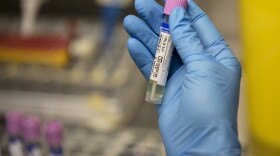This story was originally produced by the Concord Monitor. NHPR is republishing it in partnership with the Granite State News Collaborative.
It has become slightly easier to operate the smallest component of the state’s huge alcohol-centered industry, the nano-brewery, although you still can’t do it in your living room.
“It’s a small change, but it’s a good small,” said Rep. Hope Damon, a Sunapee Democrat, whose bill, HB167, was signed into law by Gov. Chris Sununu on Wednesday.
The bill tweaks the 12-year-old law, the first of its kind in the nation, that created a separate license for commercial beer operations making less than 2,000 barrels a year.
While these nano-breweries have never been a major player, with just 22 licensed in the state at the moment, they are seen as an innovative way to expand a beer scene that has become an important part of tourism and local character.
The bill removes the requirement that the nano-brewery be in “a public building” — which doesn’t sound like much, but it clears up confusion for those operations which are in buildings attached to a home.
The license from the federal Alcohol and Tobacco Trade and Tax Bureau, known as TTB, that is needed by any brewery forbids it from being operated in a residence or living space. The “public building” wording in the state law made it uncertain how much the nano-brewery must be disconnected from a residence.
“Our brewery is in a barn that is attached to the house, with a pass-through,” said Chris Prost, co-owner with his wife, Michelle, of Polyculture Brewing Co. in Croydon. Prost approached Rep. Damon about the problem, leading to the bill.
Although the Polyculture brewery building is not used as an entrance to the house, separated by a door that carries a lock approved by the TTB, a key element in the federal regulation, there was still uncertainty about whether it met the state law.
A brewery that isn’t granted a nanolicense at the cost of $240 would have to get a manufacturer’s license at $1,200 a year.
“This is our fifth anniversary. For almost this entire period we had been told by the (state) liquor commission you have to get the beverage manufacturers license,” said Prost.
“That’s not a huge difference but it makes a benefit for these truly small businesses,” said Damon. “They were paying a license fee that correlated with a much larger amount of production.”
In Polyculture’s case, make that much, much larger. The Croydon nano-brewery produces around 30 barrels of beer a year. “We might be the smallest in the state,” said Prost.
These articles are being shared by partners in The Granite State News Collaborative. For more information visit collaborativenh.org.







